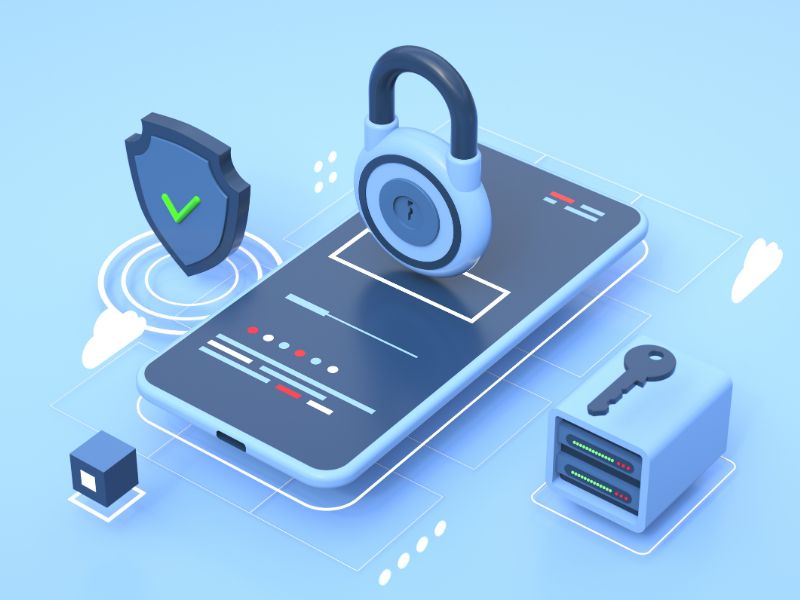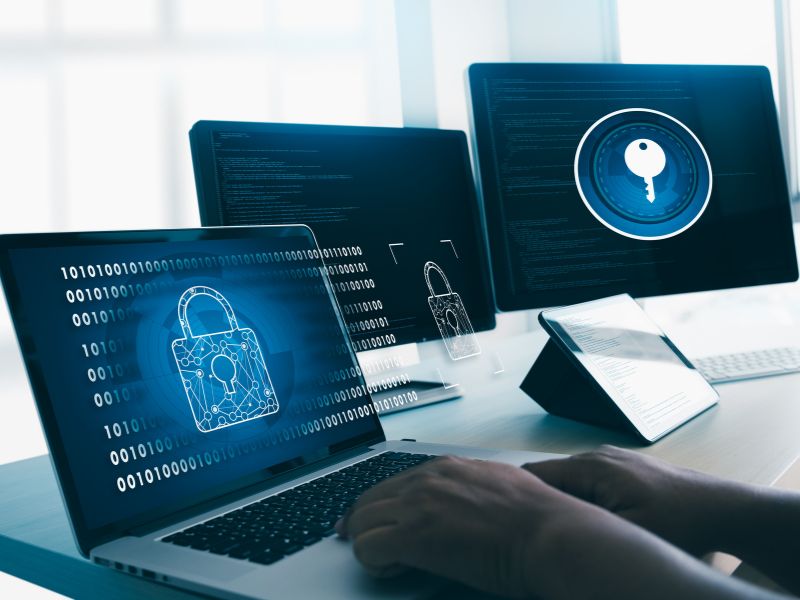Cyber Security for Small Businesses
We all know running a small business is a 24/7 job. You’re juggling employees, customers, and day-to-day operations. But there’s one thing you can’t afford to overlook: Cyber Security.
Why Is Cyber Security Important?
- Protect Your Money: Cyber-attacks can directly steal money from your accounts.
- Guard Your Reputation: A data breach can severely damage your business reputation.
- Legal Consequences: You could face legal penalties for failing to protect customer information.
Easy Steps to Boost Your Cyber Security
Use Strong Passwords
Create passwords that are at least 12 characters long and include numbers, symbols, and upper and lower-case letters.
Regular Software Updates
Always update your software and operating systems. These updates fix security flaws.
Employee Training
Educate your team on the basics of cyber security. Make sure they can spot suspicious emails or links.
Secure Your Wi-Fi
Password-protect your Wi-Fi and change the password regularly.
Backing Up Important Data: Your Business Safety Net
Imagine spending years collecting customer details, financial records, and other critical business information, only to lose it all in an instant. Backing up your data is like having a safety net for your business. If something goes wrong, you can get back on your feet quickly.
- Recovery from Mistakes: Accidentally delete an important file? A backup can save the day.
- Protection Against Attacks: If cybercriminals attack, you can restore your systems with your backup.
- Business Continuity: Natural disasters or hardware failures won’t stop your business if you have a good backup.
What Data Should You Back Up?
- Customer Data: Names, contact details, and transaction histories.
- Financial Records: Invoices, tax records, and bank statements.
- Employee Information: Payroll, employment records, and other HR files.
- Product or Service Data: Details about your products or services, including inventory levels.
- Website and Digital Assets: Your website, any blogs, and other digital marketing materials.
Backup Options
- Cloud Storage: Services like Google Drive or Dropbox store your data on the internet, making it accessible from anywhere.
- External Hard Drives: These are physical devices that you can plug into your computer to store a copy of your data.
- Network-Attached Storage (NAS): A dedicated device connected to your business network, useful for backing up multiple computers.
How to Set Up a Backup
- Choose a Method: Decide between cloud storage, external hard drives, or NAS based on your needs.
- Schedule Regular Backups: Set your backup to run automatically at regular intervals—daily, weekly, or monthly.
- Test Your Backup: Make sure to check that you can retrieve your data from your backup solution.
- Store a Copy Offsite: Keep a copy of your backup in a different physical location for added security.
Backing up your data is a simple step that provides enormous peace of mind. Think of it as an insurance policy for your business you hope you’ll never need it, but you’ll be glad you have it if you do.
Extra Steps for Added Security: Two-factor authentication (2FA)
This adds an extra layer of security when logging in to your systems – Two-Factor Authentication (2FA): The Extra Security Guard
Do you know how some buildings require both a key card and a passcode to enter? Two-factor authentication (2FA) works the same way for your online accounts. Instead of just a password (one factor), you need a second verification (second factor) to prove it’s really you.
Why Should You Use 2FA?
- Double Protection: Even if someone guesses your password, they’ll need the second factor—usually a code sent to your phone—to get in.
- Immediate Alert: If you receive a 2FA code without trying to log in, it’s a sign that someone is attempting to access your account.
- Easy to Set Up: Many online services offer 2FA options right in the settings.
Common Types of 2FA
- Text Message (SMS) Codes: After entering your password, you’ll receive a text with a code that you must enter to log in.
- Authentication Apps: Apps like Google Authenticator generate a time-sensitive code you use along with your password.
- Hardware Keys: These are physical devices, like a USB stick, that you plug into your computer as the second verification steps
How to Enable 2FA
- Check Settings: Go to the account settings of your online service (like your email or online banking).
- Find Security Options: Look for a tab or section named “Security” or “Privacy.”
- Enable 2FA: There will usually be an option to turn on Two-Factor Authentication.
- Follow Instructions: You’ll be guided through the steps, which often include verifying a code sent to your mobile phone.
Enabling 2FA is like adding an extra lock to your door. Getting in might take a bit more time, but it provides much greater security. You wouldn’t skimp on a lock for your shopfront, so why do it with your online accounts?
Firewalls: Your Business’s Virtual Security Guard
Think of a firewall as a virtual security guard for your business. Just like a security guard checks who’s entering your building, a firewall monitors the data coming into and going out of your computer network.
It blocks unauthorised access and suspicious activities, helping to keep your sensitive information safe. It’s a crucial first line of defence against cyber threats like viruses and hackers.
Many come built into your operating system, but you can also invest in specialised firewall software for stronger protection. Setting up a firewall is relatively simple, often just a matter of turning the feature on in your settings, but it offers a significant boost to your overall cyber security.
Hire a Professional
Consider getting expert advice to assess and improve your Cyber Security.
While it may seem like a lot to manage, taking these steps can save you from devastating losses and help you focus on what you do best—running your business.
Disclaimer: This article is designed to help you think about what you might need to protect your business, it’s not a definitive action plan! Businesses often vary in security requirements, so we would strongly advise companies to seek professional advice and support when implementing cyber security.
A Useful Link… https://www.ncsc.gov.uk/
Stay safe out there!



